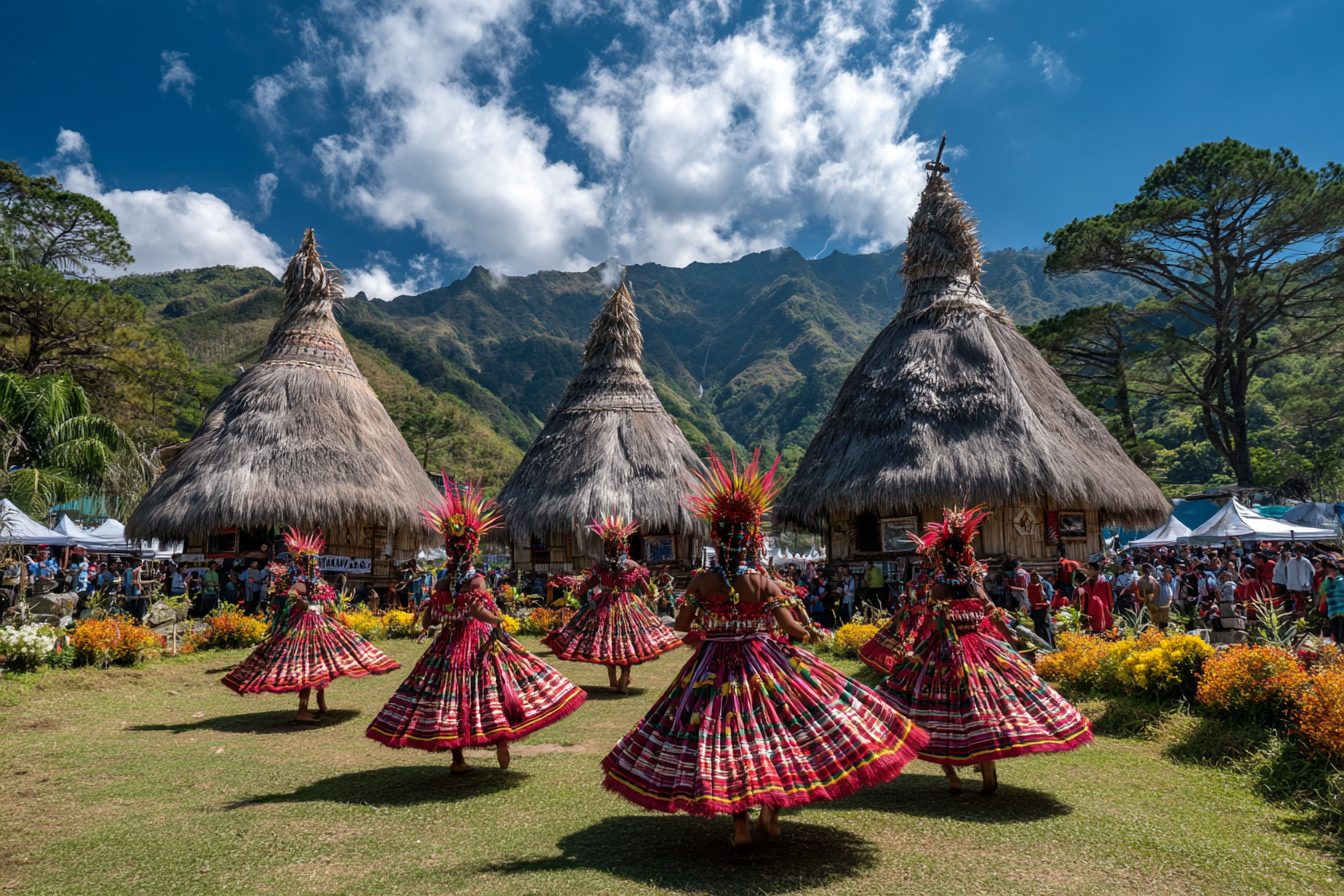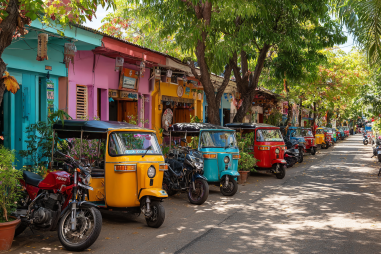Banaue is often celebrated globally for its breathtaking rice terraces, a marvel of ancient agricultural engineering. However, this enchanting destination in the Philippines is far more than its scenic vistas. It stands as the homeland of the Ifugao people, an indigenous group with a vibrant culture that has thrived for centuries. Their traditions, customs, and way of life form the backbone of Banaue’s identity. Delving into the world of the Ifugao not only enriches our understanding of their heritage but also deepens our appreciation for a culture that continues to inspire and endure. Join us on this engaging journey as we unveil the Banaue indigenous culture, exploring its richness from age-old rituals to contemporary living.
Overview of the Ifugao People
The Ifugao people are an indigenous ethnic group nestled in the mountainous region of northern Luzon, Philippines. They are best known for creating the Banaue Rice Terraces, often referred to as the “Eighth Wonder of the World,” which demonstrate their deep connection to the land and sophisticated agricultural knowledge. The Ifugao have a social structure that revolves around community cooperation, family ties, and respect for nature.
Rooted in animistic beliefs, their spirituality honors spirits of nature, ancestors, and deities, which influence many aspects of their daily life. The Ifugao language, arts, and oral traditions continue to be passed down through generations, maintaining their distinct identity despite the pressures of modernization. Living predominantly in small villages scattered across the mountain slopes, the Ifugao uphold their customs through farming, rituals, and craftsmanship.
Traditional Practices and Rituals
The Ifugao culture is rich with traditional practices and rituals that mark important occasions, from planting and harvest to life milestones and spiritual ceremonies. Central to their way of life are rituals that seek to ensure harmony between humans and the natural and spiritual worlds.
For example, the “Baki” ceremony honors the rice spirit, asking for bountiful crops and protection from natural disasters. This ritual involves offerings of chicken, rice wine, and prayers conducted by a mumbaki, or traditional priest. Wedding ceremonies are elaborate and community-focused, symbolizing both the union of individuals and the strengthening of social ties.
Additionally, funerary rites and healing ceremonies reflect the Ifugao’s belief in ancestral spirits playing an active role in everyday life. Many of these observances are accompanied by chants, music played on traditional instruments like the gong and bamboo flute, and intricate dances that tell stories of their history and legends.
Indigenous Crafts and Weaving
The Ifugao are also masterful artisans, particularly renowned for their weaving and wood carving skills. Ifugao weaving is characterized by vibrant geometric patterns, often dyed using native plant-based pigments. The textiles, traditionally made on backstrap looms, serve multiple purposes—from clothing to ritual use and household items.
Each weave pattern holds symbolic meaning representing nature, ancestral tales, or social status. Men, on the other hand, excel in wood carving, crafting stunning rice gods (bulul) statues believed to guard the rice and ensure bountiful harvests. These bulul figures are sacred and often kept in granaries or homes.
Pottery, basketry, and beadwork are other crafts that showcase the Ifugao’s creativity and connection to natural materials found in their environment. Supporting these crafts not only preserves cultural heritage but also sustains local economies.
Cultural Festivals in Banaue
Festivals in Banaue are vibrant expressions of Ifugao cultural identity, celebrated with enthusiasm and community participation. One of the most notable is the “Gotad ad Ifugao” or the Ifugao Festival, held annually to showcase indigenous music, dance, costume, and rituals.
During the festival, locals and visitors alike enjoy traditional performances such as the “Tayaw,” a bamboo dance that mimics the steps of birds in flight, and the “Etag” feast, featuring native delicacies including cured meats and rice wine. These festivities serve not just as entertainment but as vital opportunities to pass on traditions to younger generations and foster cultural pride.
Other observances coincide with agricultural cycles, where rituals and community feasts further embed the cultural values of cooperation, gratitude, and respect for nature.
How Tourism Impacts Indigenous Culture
Tourism in Banaue, driven largely by visitors eager to see the iconic rice terraces and experience indigenous culture, has a complex impact on the Ifugao communities. On the positive side, tourism generates income and incentives to preserve cultural heritage, crafts, and traditional architecture. Many locals have adapted by offering homestays, guided tours, and selling handicrafts.
However, there are challenges too. Increased tourist foot traffic risks environmental degradation and can lead to commercialization of culture, potentially diluting the authenticity of traditions. Some rituals and artifacts may be performed or displayed primarily for tourist consumption rather than genuine practice, causing cultural erosion.
Striking a balance is essential. Responsible tourism that prioritizes cultural respect and environmental sustainability helps ensure that the Ifugao culture remains vibrant and respected rather than exploited.
Visiting Local Villages Respectfully
When visiting Banaue and its neighboring villages, it’s important to approach with mindfulness and respect for local customs. Here are a few tips to keep in mind:
- Ask for permission: Always seek permission before entering homes, farms, or sacred sites.
- Dress appropriately: Wearing modest clothing respects cultural norms.
- Be mindful of photography: Ask before taking photos of people, ceremonies, or sacred objects.
- Follow local guidelines: Listen to community rules regarding access and conduct.
- Support local businesses: Buy crafts and services from indigenous artisans and entrepreneurs.
- Respect the environment: Stick to designated paths and avoid littering.
By showing respect, visitors help maintain trust and encourage positive cultural exchanges, creating an enriching experience for both guests and hosts.
Learning from Community Guides
One of the most meaningful ways to deepen your understanding of Ifugao culture is by engaging local community guides. These knowledgeable individuals offer authentic insights into their heritage, daily life, and environment.
Community-based tourism initiatives often ensure that guides are trained and fairly compensated, enabling them to share stories that go beyond superficial observations. Walking through rice terraces, visiting homes, and attending rituals or workshops with a local guide provides a nuanced appreciation of the intricate relationship between the Ifugao people and their land.
It’s also an opportunity to learn native terms, observe traditional farming techniques, and hear about folklore directly from those who live it. Such interactions build bridges of cultural understanding and foster respect for indigenous knowledge systems.
Preserving Banaue’s Cultural Heritage
The future of Banaue’s indigenous culture depends heavily on collective effort to preserve its traditions while embracing modern exigencies. Local communities, government agencies, NGOs, and tourists all have roles to play in safeguarding this heritage.
Preservation initiatives include cultural education programs for younger generations, sustainable tourism practices, and revitalization of traditional crafts and rituals. Supporting local artisans and participating in respectful cultural activities help bolster this effort.
By valuing the Ifugao’s indigenous culture not only as a tourist attraction but as a living, evolving way of life, we contribute to a legacy that honors the resilience, creativity, and spirit of the Banaue people. Exploring this culture with genuine curiosity and humble respect allows us to partake in a priceless cultural journey—one that resonates far beyond the rice terraces themselves.







